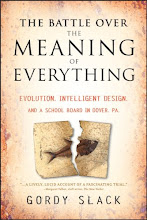Monday, September 28, 2009
Remember to Forget
Mental Floss Magazine posted a fascinating article about super-autobiographical memory last week. The piece profiles four adults who share the ability to recall tiny, seemingly insignificant details from long ago. The possibility that everything we experience is stored somewhere in our brain goes back to experiments by British neurosurgeon Wilder Penfield, who provoked specific, long-forgotten memories in his patients by touching parts of their temporal lobes with an electric probe. One epileptic patient relived a childhood experience of smelling burnt toast each time Penfield stimulated a particular location on her cortex.
If the people profiled in Mental Floss can control their access to the huge database in their brains, why can’t the rest of us? The coming decades may explain why, or they may show us how we can recover long-forgotten details, too. But I suspect that we will also learn that our ability to forget—to flush destructive or superfluous data or memories--is at least as important as our ability to remember. Especially if the data we’re talking about contains viral components that can keep our brains pinwheeling while other key bits of data--our lives-- pass us by. Those of us who can’t remember every episode of Flipper should thank our lucky stars.
One hot and relevant area of current research focuses on the role of attention in helping the brain decide what to hold onto and what to flush. Take a look, for instance, at this Journal of Neuroscience paper by Adam Gazzaley and Theodore P. Zanto showing how "top-down" attention is related to memory acquisition. Choosing what to remember and what to let slide sounds good, but I wonder if our conscious minds can always be trusted to know what's important to remember and what's not?
Subscribe to:
Post Comments (Atom)



No comments:
Post a Comment